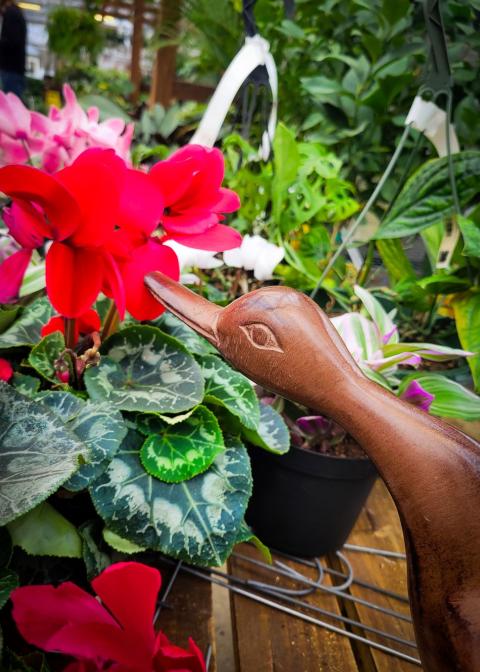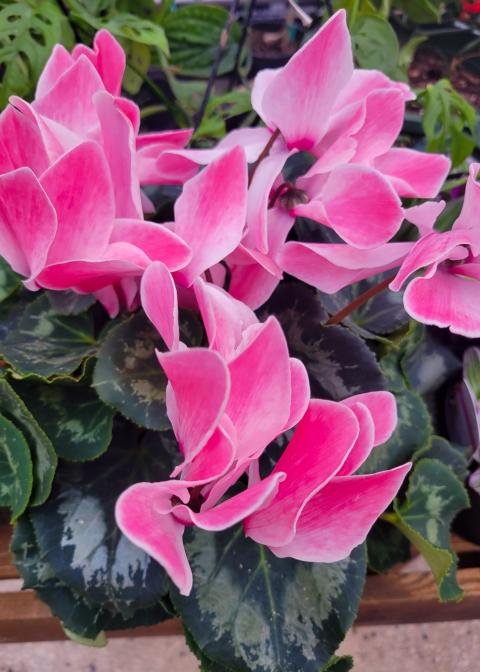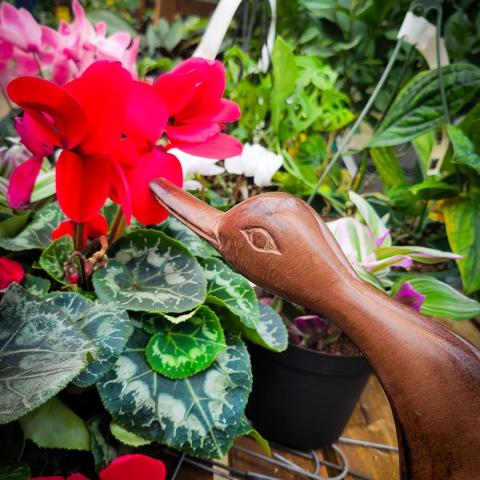Can house plants make you happier?
People enjoy having houseplants in their home for many reasons. They can brighten up a room with a splash of color from foliage and flowers and can add to the overall aesthetic of an indoor space. Especially during our long, cold New Hampshire winters, having some greenery in our homes can also feel like it helps improve our mood. The science, in fact, supports this. In addition to improving your home’s decor, houseplants may provide some real health benefits.
Mental health improves with houseplants
Studies have shown that the biggest benefits to health from having houseplants are psychological. Spending time with houseplants lowers cortisol levels, the hormone our bodies produce when we’re under stress. Being around plants reduces the amount of cortisol in our bloodstream, leading to feeling less stress.
Additionally, research suggests that having and caring for houseplants can reduce heart rate and blood pressure. Experiments in hospitals have even shown that ornamental plants in rooms can improve outcomes for patients recovering from surgery.
All these findings point toward the idea that having plants in our environment makes us feel calmer, more at ease and happier.
Consider adding houseplants to rooms in which you spend a lot of time to maximize the positive benefits. A home office, a living room or a den are great places to add houseplants. Choose plants that don’t require much care but don’t forget to check in on them and water when the soil feels dry.
When asked why houseplants make people happy, UNH Extension Master Gardener Terrie Wallace explains, "It's simple—because it's fun. There's joy in nurturing a living organism and watching it thrive. Plants add pleasant surprises to our lives, like a cactus suddenly blooming. Others lift our spirits with their bright flowers or lovely foliage. All plants bring beauty and a touch of nature into our homes, creating a calming and pleasurable environment."
The confusion about houseplants cleaning your home’s air
One commonly repeated health benefit of houseplants is that they clean harmful chemicals from the air. This belief largely stems from a NASA study in the late 1980s that suggested houseplants could filter out harmful chemicals such as benzene and formaldehyde which are common indoor air pollutants. While it is true that some plants do filter chemicals from the air, the often-cited study was focused on sealed environments found in space capsules and the Space Station. The findings are not applicable to homes and buildings that have air exchange with the outdoors. If you’re worried about indoor air quality, opening windows and running a HEPA air filter are better ways to improve the quality of your indoor air.
Why do houseplants thrive in houses?
Most houseplants thrive in homes because they are tropical plants. Unlike many of the native plants that we have in New Hampshire that require periods of cold, tropical plants evolved to grow in relatively constant, warm temperatures, like the conditions inside of your home! Many also evolved in the understory of forests, which means they require less sunlight and it’s the reason why houseplants can thrive in a window with less direct sunlight. Generally, houseplants like well-draining soil so make sure not to overwater. Fertilize with a houseplant specific fertilizer about once per month during the spring and summer months.
University of New Hampshire
- Which foliage houseplants are easiest to grow?
- Fertilizing Houseplants
- Foliage Houseplants, Fertilizing, Cleaning Leaves, Aphids & ZZ Plant [audio]
Penn State University
Utah State University
Summary
Houseplants can brighten up a room and improve the overall aesthetic, especially during long winters. Studies show that houseplants can lower cortisol levels, reduce heart rate and blood pressure, and improve patient outcomes in hospitals, making us feel calmer and happier. While houseplants do not significantly clean indoor air, they thrive in home environments and can be a low-maintenance way to bring nature indoors.
Ask Questions, Get Ideas
Staff experts, Master Gardeners and Natural Resource Stewards connect you with the resources of the University of New Hampshire.












